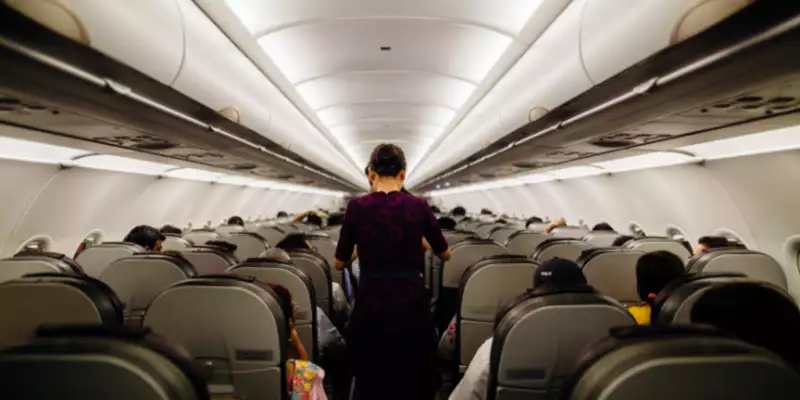The Importance of Airport Conflict Resolution
Conflict in any circumstance isn’t a pleasurable thing to witness. It can leave onlookers and participants feeling uneasy, agitated, and overall coming away with a negative memory of the experience.
In airports, conflicts are damaging to the reputation of the airport and the airline involved, which is one of the reasons why they need to be resolved swiftly and effectively. However, the most important reason airport conflicts need to be avoided or addressed is because they pose a significant risk to public safety.
Airport and airline staff will often encounter unruly and disruptive passengers both in the airport and during flights. Both instances of conflict can quickly become a threat to others, which is why it is imperative staff are trained to identify warning signs of aggravation before the situation spirals out of control.
Should would-be passengers become disruptive or aggressive, airport staff will remove them from the situation, refusing entry to their flight so the rest of the passengers can have a safe and enjoyable journey.
Conflict Situations in the Airport: Examples
There are many reasons conflict situations in airports arise, and often it can be a culmination of things that result in a passenger’s outburst or undesirable behaviour.
In most cases, airport conflict situations are a result of:
- Fatigue
- Alcohol
- Restrictions on smoking
- Cancelled flights
- Delayed flights
- Missed flights or connections
- Lost luggage
- Out of order facilities or services
- Poor customer service
- Miscommunication
Generally, the conflict situations that arise from these scenarios fall into three categories: a disagreement, verbal abuse or in severe cases, a physical attack. In all cases, airport staff will do what they can to minimise the occurrence of these situations. This is why they are trained to look for early signs of conflict.
These include:
- Signs of agitation like sweating or angry facial expressions
- Excessive drinking
- Appearing drunk or under the influence of drugs
- Shouting or speaking with a raised voice
- Negative body language
- Irrational behaviour
- Refusal to partake in necessary airport procedures like baggage checks etc.

Consequences of Airport Conflict Situations
Many passengers are often nervous about flying due to increased instances of aircraft and airport terrorist-related incidences. These cases of severe conflict are extremely damaging to the aviation industry, and while other types of passenger related airport conflict are not as hazardous, they too have their consequences.
Airport staff are more commonly dealing with unruly passengers as more people take to the sky to travel. Despite this only being the very minority of those who travel this way, we can’t forget that it only takes one aggressive passenger to jeopardise the safety of everyone else on board, or others at the airport.
Besides safety implications, there are also serious consequences to this kind of behaviour. Anyone acting in an undesirable way can be refused entry onto their flight, which would hinder their ability to travel. They can also be banned from flying with the airline going forward and, in many cases, can be prosecuted for their actions.
The punishment depends on the severity of the incident. For instance, acts of drunkenness mid-flight can land a passenger two years in prison and a £5,000 fine. If a passenger endangers the safety of a plane, they can face up to five years in prison.
Aggressive and disruptive behaviour is one of the main reason’s aircrafts are diverted. In this incidence, the passenger may be required to reimburse the airline with the cost of the diversion. This ranges from £10,000 - £80,000 depending on the size of the aircraft and where it had to make an unscheduled landing.
So, not only is airport conflict resolution important to prevent undesirable and unsafe behaviour on flights, it also prevents massive additional costs.
How to Manage and Avoid Airport Conflict Situations
If you want to know how to solve arguing conflict in the airport that could escalate, studying a course dedicated to providing you with these skills would be highly beneficial.
Not only would you learn how to keep things running smoothly, but you would know how to spot signs of distress that could quickly get worse should situations become aggravating for certain passengers. In these circumstances, you would be equipped with the knowledge and skills to calm, reassure and diffuse any undesirable behaviour to get things back on track for all involved.
The learndirect Airline and Airport Conflict Management course will help you do just that. It incorporates modules that will help you understand the nature of conflict and how you can effectively handle conflict situations through deploying appropriate methods.

The modules you will cover include:
Conflict and Anger
- Understand the sources and nature of conflict
- Consider different conflict-handling styles
- Learn to understand and deal with anger - as crew and with your passengers
Listening
- Understand the ideal listening process and how to open yourself up to the message
- Deal with prejudices that may damage your ability to listen
- Beware of traps for listeners
Negotiation
- Understand the nature of passenger versus airline conflicts
- See how these groups approach conflict situations
- Understand the joint problem-solving approach - learn good negotiating practice
- Discover strategies for rescuing difficult situations
Mediation
- Understand the meaning and nature of mediation
- Know when mediation is useful
- Understand the phases of the mediation process
- Deal with problems that can arise during this process
Crisis Mediation
- Know what qualities you need to develop to be an effective mediator
- Understand the problem of re-entry
- Look at causes of power imbalances in negotiation
- Learn to deal with these power imbalances
- Understand the importance of establishing a good working relationship with the other party
- Realise the need for mediation in crisis situations
Practical Conflict Management Techniques
- Understand the function of group work in conflict management training
- Learn to plan workshop sessions
- Understand how to facilitate workshops
- Know when and how to conduct beneficial role-playing exercises

Study Airline and Airport Conflict Management
With learndirect, you can learn how to solve arguing conflicts in the airport and prevent any unruly passengers from putting others at risk. What’s more, you can get these skills from the comfort of your own home as all the learning materials are online.
Our Airline and Airport Conflict Management course is ideal for anyone who aims to work in the aviation industry or who already holds a position in this sector and wants to enhance their skills.
Keeping passengers happy and calm is essential for a stress and risk-free travel experience. In many instances, they just need to feel heard and understood, which can be tricky in an environment that is so fast-paced. By studying this course, you will be better equipped to keep airport and airline conflicts to a minimum. You will be able to reduce airline expenses by preventing costly, undesirable behaviour, and keep people wanting to travel with your airline for years to come!
Get Started Today
You can develop your airport and aircraft conflict management skills around your existing commitments. Our online courses put fewer obstacles in the way of you and what it takes to achieve your goals in your career.
This course is delivered through an engaging array of online learning materials, all of which are available once you start your course. With this instant access, you can work through the materials at your pace and finish this course as soon as you’re ready. So you can upskill and progress quickly.
Find out more by contacting our Course Executives today. They will answer all your questions and help you get enrolled.
Call them now on 01202 006 464 or contact them online.
















